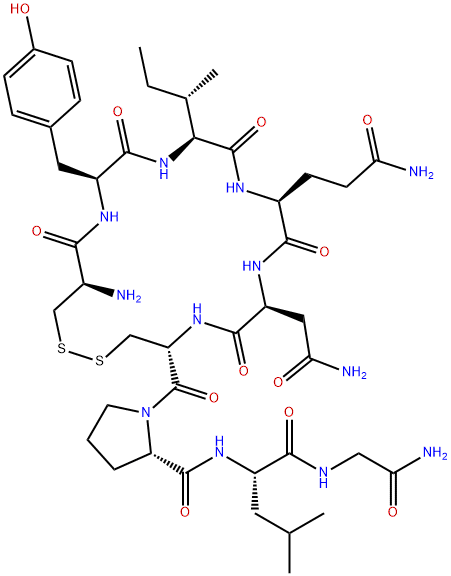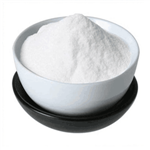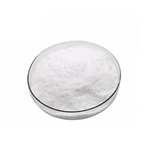Oxytocin: The Bonding Hormone That's More Than Just a "Love Hormone"
May 9,2024
Introduction
Oxytocin, often referred to as the "love hormone" or "bonding hormone," is a fascinating peptide that plays a crucial role in various physiological and behavioral processes in mammals, including humans. Its discovery in 1906 by Henry Dale and its subsequent characterization has opened up a vast field of research into its functions and effects. This peptide, composed of nine amino acids, is produced in the hypothalamus and released by the posterior pituitary gland into the bloodstream. Its role in social bonding, maternal behavior, and reproductive physiology has been well-documented, but recent research has also highlighted its involvement in other processes, such as stress modulation, wound healing, and cardiovascular regulation. Oxytocin's effects are mediated by its interaction with specific receptors in various tissues, leading to a cascade of physiological responses. As our understanding of oxytocin continues to evolve, so too does our appreciation of its complexity and significance in the broader context of mammalian physiology and behavior[1].

Figure 1 Characteristics of Oxytocin
Synthesis
Oxytocin is synthesized in the hypothalamus and released by the posterior pituitary gland into the bloodstream. The synthesis process involves the cleavage of a larger precursor protein, preprooxytocin, into smaller fragments. This precursor is then processed further to yield the biologically active form of oxytocin, which consists of nine amino acids.
Main Components
The primary structure of oxytocin consists of a cyclic peptide chain of nine amino acids: cysteine, tyrosine, isoleucine, glutamine, asparagine, cysteine, proline, leucine, and glycine. The cyclic structure is formed by a disulfide bond between the two cysteine residues, which is crucial for the hormone's biological activity.
Applications
Oxytocin has a wide range of physiological and behavioral effects, making it a valuable tool in medical and research applications. In clinical settings, oxytocin is used to induce labor, manage postpartum hemorrhage, and facilitate breastfeeding. Additionally, oxytocin is being studied for its potential role in treating social and emotional disorders, such as autism spectrum disorder and schizophrenia.
In recent years, research has also focused on oxytocin's role in modulating social behavior and cognition. Studies have shown that intranasal administration of oxytocin can enhance trust, empathy, and social bonding in humans. This has led to interest in using oxytocin as a therapeutic agent for conditions characterized by social deficits, such as social anxiety disorder and borderline personality disorder[2].
Toxicity
While oxytocin is generally safe when used appropriately in clinical settings, excessive doses can lead to adverse effects. These may include uterine hyperstimulation, which can pose risks to both the mother and the fetus during labor. Oxytocin overdose can also cause fluid retention, electrolyte imbalance, and cardiac arrhythmias.
Storage Methods
Oxytocin should be stored in a cool, dry place away from light, as exposure to heat, moisture, or light can degrade the hormone. It is typically stored in a freeze-dried powder form and reconstituted with sterile water before use. Once reconstituted, oxytocin should be used promptly or refrigerated to maintain its stability.
Conclusion
Oxytocin is a remarkable hormone with diverse physiological and behavioral effects. Its role in bonding, social behavior, and reproduction makes it a fascinating subject of study for researchers in the chemistry field. Understanding the synthesis, main components, applications, toxicity, and storage methods of oxytocin is essential for maximizing its potential benefits while minimizing the risks associated with its use.
In conclusion, oxytocin is a multifaceted hormone with a range of effects that extend beyond its traditional association with social bonding and love. Its chemical properties and biological functions make it a valuable area of study for professionals in the chemistry field. As research continues, oxytocin's role in medicine and human behavior may become even more significant, offering new insights and potential therapeutic applications[3].
References
[1]Lee H J, Macbeth A H, Pagani J H, et al. Oxytocin: the great facilitator of life[J]. Progress in neurobiology, 2009, 88(2): 127-151.
[2]Kosfeld M, Heinrichs M, Zak P J, et al. Oxytocin increases trust in humans[J]. Nature, 2005, 435(7042): 673-676.
[3]Gimpl G, Fahrenholz F. The oxytocin receptor system: structure, function, and regulation[J]. Physiological Reviews, 2001, 81(2): 629-683.
- Related articles
- Related Qustion
- Oxytocin:a hormone and neuropeptide Jan 8, 2024
Oxytocin, crucial for bonding, also influences stress and social behavior, with medical applications in obstetrics and ongoing therapeutic research.
- Oxytocin:Mechanism, Application, Adverse Effects, Contraindications and Cautions Studies Feb 21, 2023
Oxytocin is an oligopeptide hormone that contains nine amino acyl residues, or in other words, a nonapeptide hormone. It is one of the two hormones stored.
- Oxytocin Jun 8, 2022
OT is a mammalian oxytocin family peptide stimulating uterine contraction and milk ejection. Recently, its central effects have attracted attention and it is considered a “great facilitator of life.”
Potassium sorbate has garnered significant attention for its versatile applications and safety considerations.....
May 9,2024APIRuthenium nanodrugs optimize complex structure, enhance delivery with nanocarriers like selenium and gold, and require rigorous pharmacokinetic studies for efficacy and safety.....
May 9,2024API






